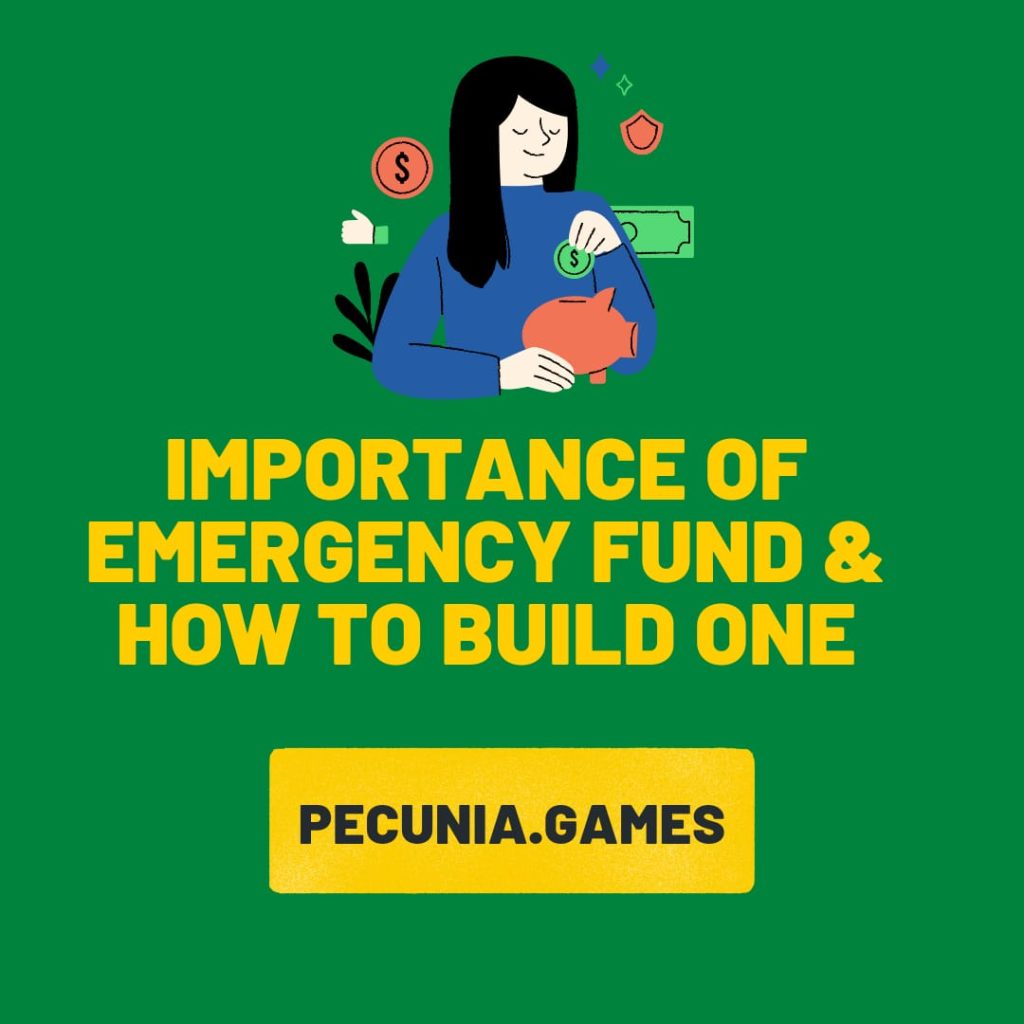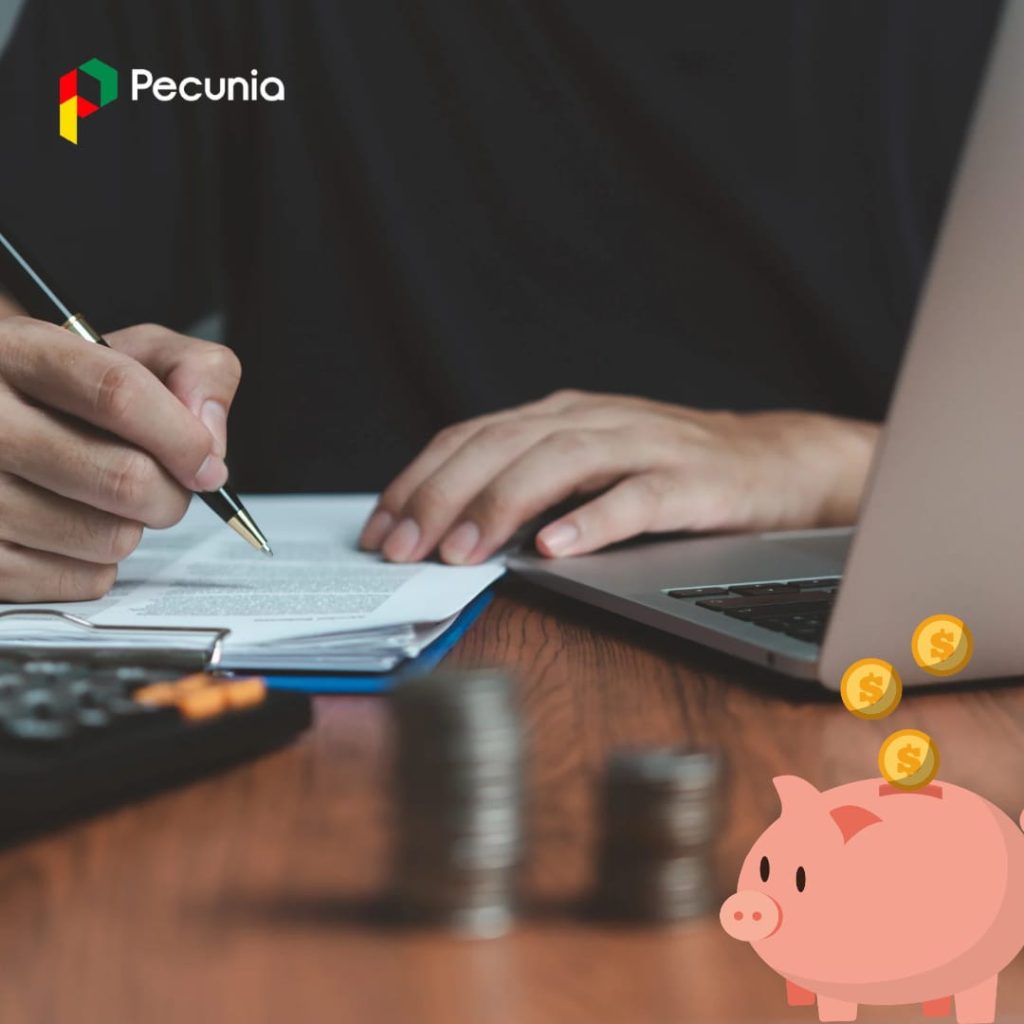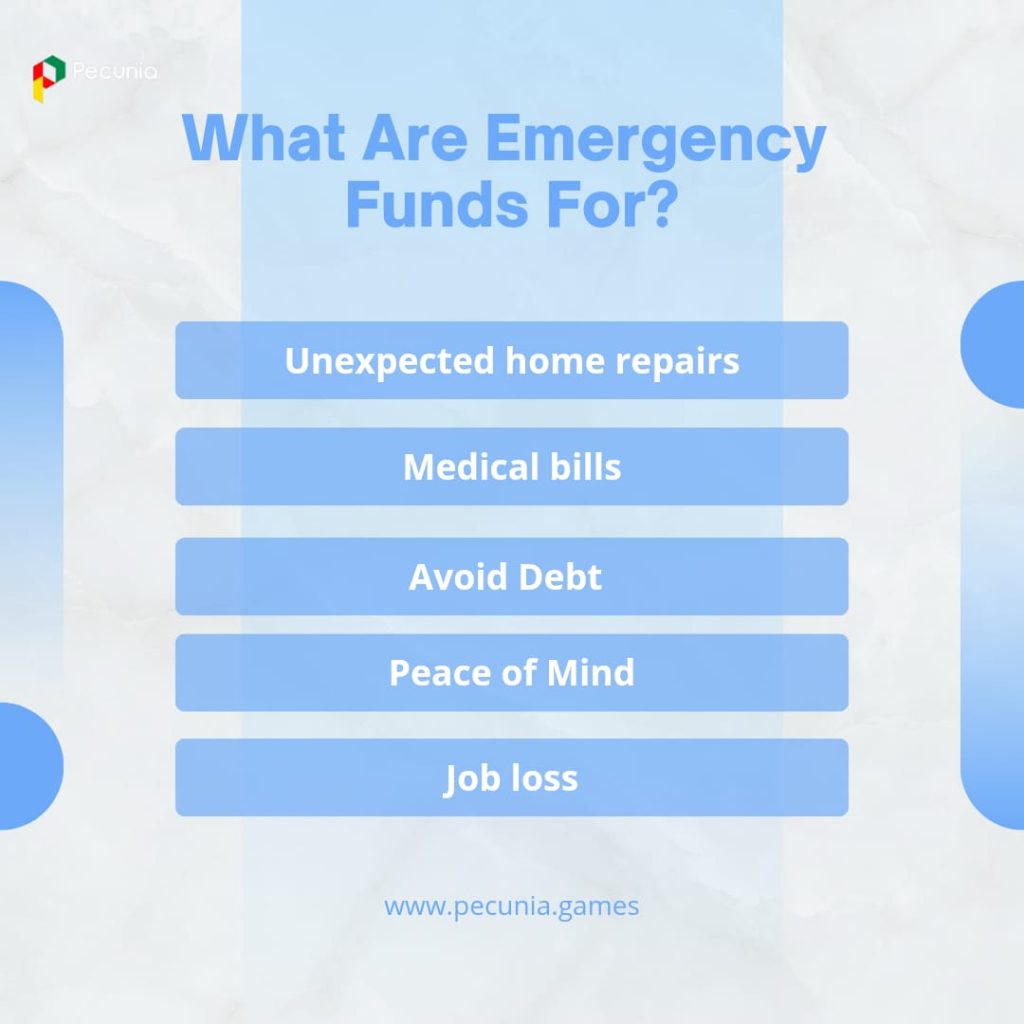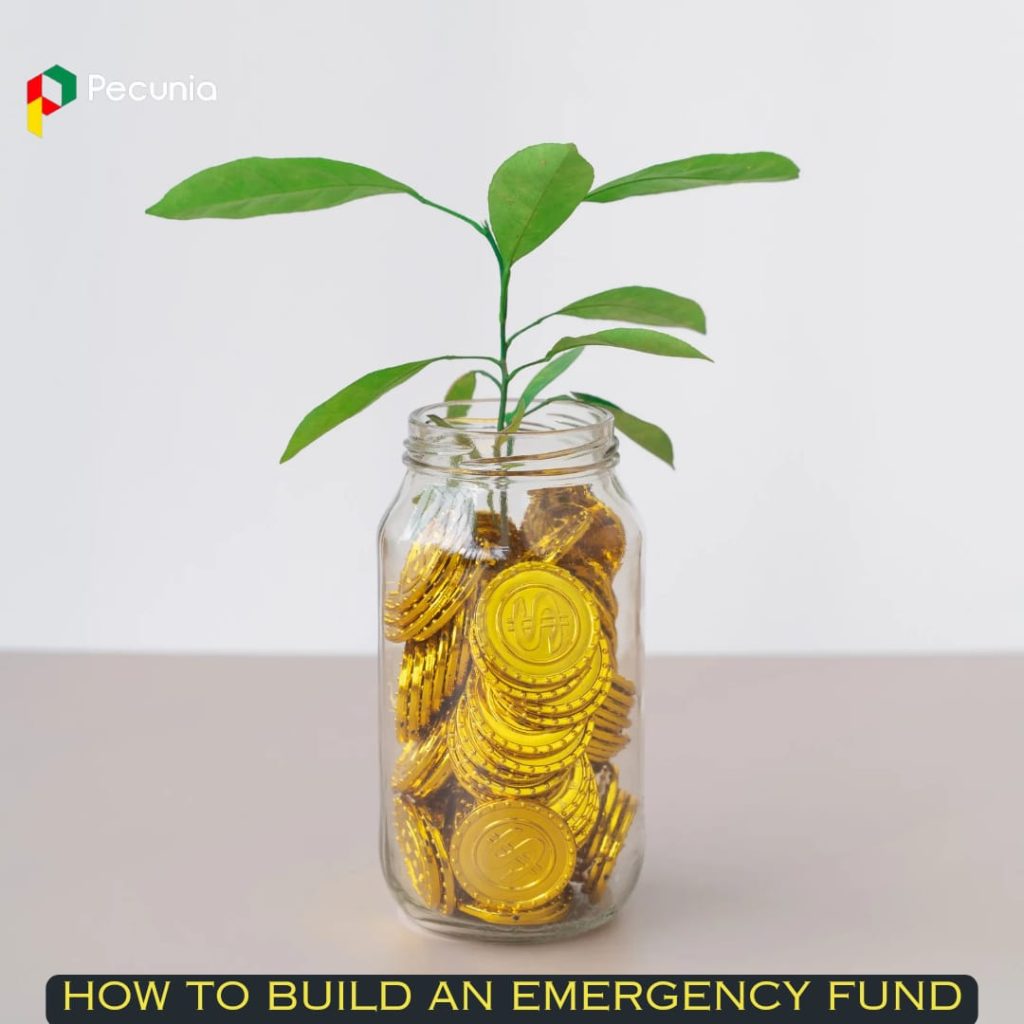
AND HOW TO BUILD ONE
You can’t stop a bird from flying over your head but you can stop it from making a nest on your head.
There are certain things we can’t stop from happening but we can decide how they affect us by putting a measure in place. No one hopes that things get spoiled in the house, but it could happen, and when it does, this is where Emergency fund is needed. You might probably be asking what emergency funds means.
WHAT IS EMERGENCY FUND?

An emergency fund is a cash reserve that’s specifically set aside for unplanned expenses. It is a sum of money that is easily accessible and kept in a liquid form, such as a savings account, so that it can be quickly used when needed.
The main purpose of an emergency fund is to provide financial stability and peace of mind during times of unexpected events, such as medical emergencies, car repairs, job loss, or other unforeseen circumstances.
It’s highly recommended to have enough savings in an emergency fund to cover three to six months’ worth of living expenses, though the exact amount can vary depending on individual circumstances and risk tolerance.
Let’s see why emergency funds are so important.
IMPORTANCE OF EMERGENCY FUND

From unexpected medical bills to job loss, life’s unplanned expenses can throw a wrench into your finances.
Here are some reasons why you should have an emergency fund:
1. Job Loss:
No one hopes to lose their job but people still lose their jobs based on circumstances beyond their control. With an emergency fund in place, you can pay your rent and utility bills, while working on getting another job.
2. House repairs:
Imagine seeing a movie in the sitting room with a glass of chilled juice and snacks by the side only to be disrupted by the sound of sharp electricity spark resulting in the burning of the television as well as most bulbs in the house. That alone can ruin your evening and demand an emergency fix of both the service of an electrician and the television repairer.
3. Avoid debt:
An emergency fund helps you avoid debt that could be accumulated by use of credit cards and loans for sudden expenses.
4. Peace of mind:
There is a level of peace you have when you know you have a good amount of money set aside for life emergencies. It reduces anxiety about life problems.
5. Medical bills:
Imagine scrambling to come up with how to pay an emergency medical bill rather than taking care of yourself. Having an emergency fund can help you pay off medical bills without using a credit card or getting a loan.
HOW TO BUILD AN EMERGENCY FUND

1. Create a budget:
A budget is a financial plan that outlines your income and expenses over a specific period, typically on a monthly or annual basis. Creating a budget helps you track how you spend your income. It helps you know if you have been spending on things that are not essential. You can start by recording every single thing you spend on in a month. With this in place, you can decide the amount you should keep aside for an emergency fund.
2. Decide your emergency fund goal:
Ask yourself, “How much do you want to have in your emergency fund in the next 6 months?”
Then calculate how much you should set aside daily to achieve this goal.
3. Automate your deposit plan:
Set an auto-save in your account so that money can be automatically moved to your emergency fund from your savings account. You can get this done by downloading your bank’s mobile app and setting it up in your account setting. If you have a problem doing this, you can contact your account officer to assist you with it.
4. Start small:
You can start saving the little amount you set aside from your income, and as your income increases, you can increase the amount set aside for an emergency fund. This requires financial discipline to be realized.
5. Save unexpected Income:
When you receive unexpected income such as cash gifts or work bonuses, rather than spending it, you can add it to your emergency fund. If you must spend it, you can spend a percentage and save the remaining percentage in your emergency fund.
6. Keep saving even after you have reached your goal:
Emergency does not announce its coming or how it intends to come. Some emergencies come with a little bill while some could come with an overwhelming bill. It’s important to be prepared at all times for the best and that’s why it’s important to keep saving even after you have reached your goal to be on a safe side.
Remember, building an emergency fund is a gradual process that requires discipline and consistency. The goal is to create a financial safety net that provides peace of mind and protects you from unexpected financial setbacks.